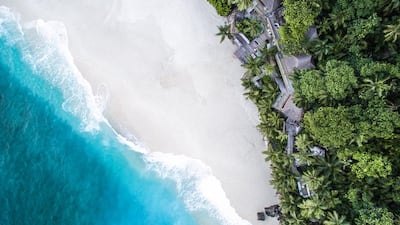So much depends on our oceans but the threats facing them are growing.
Given that oceans cover about two thirds of the earth’s surface, having clean, sustainable and healthy oceans as outlined in United Nations sustainable development goal 14 — conserve and sustainably use the oceans, seas and marine resources for sustainable development — should be a shared responsibility.
From climate change to ocean pollution and overfishing, the effects on human livelihoods and marine biodiversity are devastating.
Marine and coastal regions are increasingly being threatened by the growing climate crisis.
The increase in interest in the ‘blue economy’ highlights the close linkages between the oceans and climate change mitigation.
However, one of the largest barriers to increasing ocean resilience and supporting the blue economy is access to capital and investment.
Innovative finance is developing as a popular tool to help in the race against time to protect our oceans.
Emergence of blue bonds
Green bonds — debt instruments that fund environmentally-friendly projects — have been going from strength to strength. Although the asset class is only a decade old, the market for green bonds reached a record $163.7 billion (Dh601.2bn) last year, according to the Climate Bonds Initiative.
Building on the success of the green bond market saw a series of blue finance instruments, such as blue bonds, issued over the past year or so.
Blue bonds are similar to green bonds in their alignment to the Sustainable Development Goals (SDGs) as both incorporate socially responsible investing and environmental, social and governance (ESG) principles.
Where they differ is that funds raised by blue bonds are earmarked exclusively for marine and ocean-based projects.
The Republic of Seychelles took the lead in launching the world’s first sovereign blue bond in October last year, raising $15 million to protect marine environments and safeguard fisheries.
Though a relatively small issue, the bond points to a growing interest in blue financing — much-needed for coastal areas that rely heavily on the ocean for food security, tourism and people’s livelihoods. Many coastal and small island developing nations are extremely vulnerable to food security risks as a result of climate change and ocean acidification.
Since the Seychelles landmark issue, others have followed in their footsteps as a number of blue bonds have been issued by development banks, financial institutions and non-profit groups.
The Islamic finance industry can play a role in not only supporting the growth of the blue economy but also helping to build ocean resilience.
Developed as an industry underpinned by ethical values, inclusivity and social responsibility, the Islamic finance industry has boomed in the past two decades.
The raison d’être for linking Islamic finance with blue finance should be aligned with the overarching ideology of Maqasid Al Sharia, which outlines the objectives to preserve and advance the common interest of society.
A good starting point would be to enhance ocean resilience and investment in the blue economy, but for the Islamic finance industry to move from green to blue would require more innovative Islamic financial instruments.
For example, creating an instrument such as Blue Sukuk that not only helps to ensure protection and sustainable use of the oceans through investment in the blue economy, but also helping to build ocean resilience.
Developing Islamic blue finance presents an opportunity for the Islamic finance industry to grow and merge with the increasingly popular socially responsible finance and ESG agendas.
It will also better align Islamic finance with SDGs, signalling the industry’s commitment to environmental stewardship.
Maram Ahmed is a Fellow at SOAS, University of London

